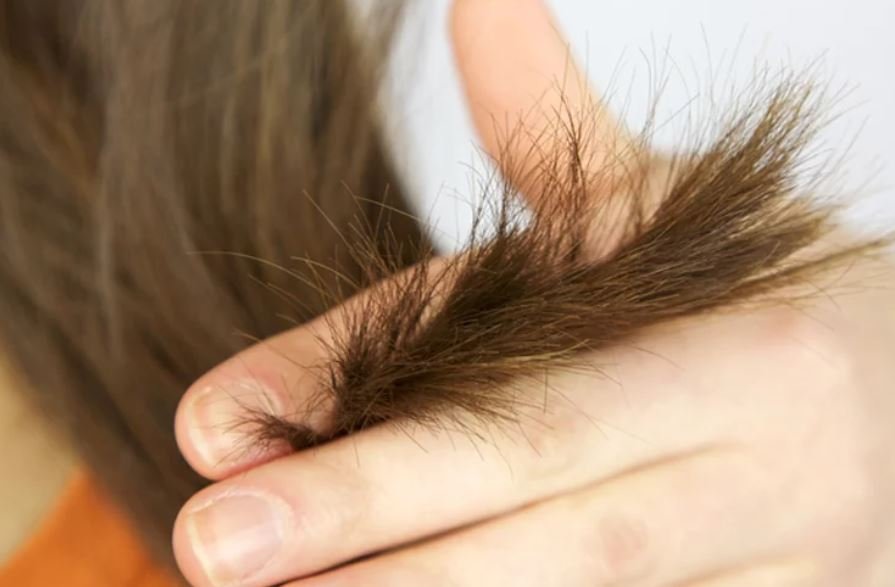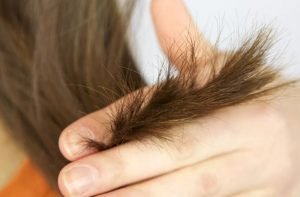

Does split end get to your last nerve, preventing you from attaining the much coveted long, lustrous, luscious strands? Well, you are not alone!
Unless you’re a fairy character, say Rapunzel? most of us are in a constant battle when it comes to scrupulous searching for remedies that do not necessarily have to involve cutting the split ends strand by strand or far worse chopping off your hair completely-most times this is not the only solution.

Split ends repair
A split end a.k.a trichoptilosis is the breaking or splitting of a hair strand towards the end or tip of the shaft.
According to The Trichological Society, you can easily determine whether your hair has split ends if it denotes any of the following characteristics; the shafts become dry and develop splits at different points which starts to resemble feathers.
Normally, split ends develop once the outer layer of the hair cuticle is damaged by external stressors such as heat styling, use of chemical products among others. Immediately the internal structure of its shaft is exposed it weakens, becomes damaged and dehydrated which leads to the development of splits notes Amy Abramite of the Maxine Salon, Chicago.
Essentially, split ends result from excessive cuticle (outermost protective layer) damage which causes it to become susceptible to breaking and splitting.
Moreover, iron deficiency, increased levels of ammonia or hypothyroidism in the body system due to other health problems can exacerbate the splitting and breaking of hair.
If I was to be totally honest, you can’t really repair split ends without cutting it, but there are a few tips and tricks that can at least salvage it, after all, nothing beats a good hair day, you know?
When it comes to repairing damaged hair, there is a lot to put into consideration, for instance, reversing the damage and preventing further or future damages. And while the majority of us tend to go to the extremities of snipping away the damaged, it’s not necessary! Yes, you can repair damaged hair without having to cut all of it!
In order to reduce and eliminate breakage, avoid brushing it while it is wet, preferably brush it before washing it. Additionally, when washing it, apply shampoo, using your fingers, in the direction of the crown of your head while gently lathering it downwards, while keeping your strands straight, in a zigzag manner through its length.
If you must detangle your hair just after washing it, using a wide tooth comb is definitely the way to go! This step comes just after applying a sufficient amount of conditioner (which minimizes snapping or breaking common in rough, towel-dried one). the process simply involves gently combing through the hair strands until fully detangled.
Use sufficient amounts of conditioner and leave-in, if needed, during all your wash days- this lubricates your hair and makes it feel super smooth and silky which helps to prevent the split.
Additionally, using especially leave-in conditioner will do wonders for you, this allows it to get extra protection, unlike conditioners that you have to rinse off.
While most of us are slaves to bargain-bin heat styling tools, it’s never worth it if you consider the damage it causes to our hair. Truth is, these inexpensive tools lack the fundamental ability to withstand temperatures favorable to our strands and instead overheat with time-exposing it to excessive heat which leads to the development of split ends. It’s more advisable to spend more on top-notch economical brands that will definitely give you your money’s worth in the long-run.
Alternatively, you can let your hair air dry once in a while! I mean, who said that you must use heat styling tools to achieve a sleek look?
While that new, trendy ombre dyes and color seems enticingly beautiful, it’s not worth it love! I know, it sucks! But in order to get back a healthy, lustrous mane, there is no way around this.
Hair dyes, highlights, perms, and straightening expose your hair to chemical trauma which causes the development of split ends, notes Abramite. And while limiting these treatments is just one part of the equation, avoiding to wash it (when it is excessively porous and more likely to break) after at least 2 days is the major challenge.
It may sound difficult but trust me starving your hair from a chemical treatment will be your best achievement, okay, not forgetting those extra dollar bills that you are definitely going to be saving… wink, wink.
Getting frequent cuts is definitely the best protection when it comes to protecting your hair from future split ends. Remember, the longer you procrastinate that much-needed trim, the more the split ends get worse and travel up the shaft of your strands.
Ever heard the phrase you are what you eat? Well, a proper diet and nutrition literally reflect the healthiness of your hair. according to Natasha sunshine, owner of Byu-Ti salon notes that foods rich in folic acid (green leafy vegetables, wheat, oranges) and biotin (lentils, brown rice, peas, walnuts) promote the health, length, and thickness of your hair.
Definitely! You may already know this but there is no harm in repeating, yes? Using some ingredients straight from your kitchen to create DIY hair masks is totally acceptable.
Majority of these ingredients contain some essential components that will definitely work miracles for you, examples of these masks include;
Other hair masks include banana mask, beer or a hot oil deep condition to mention a few.
Sources